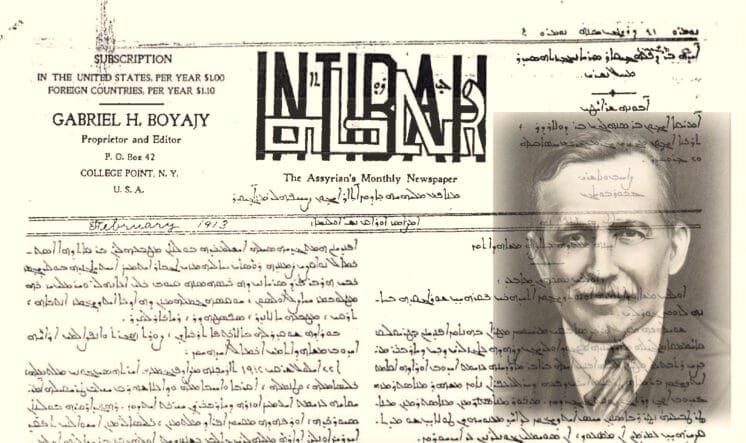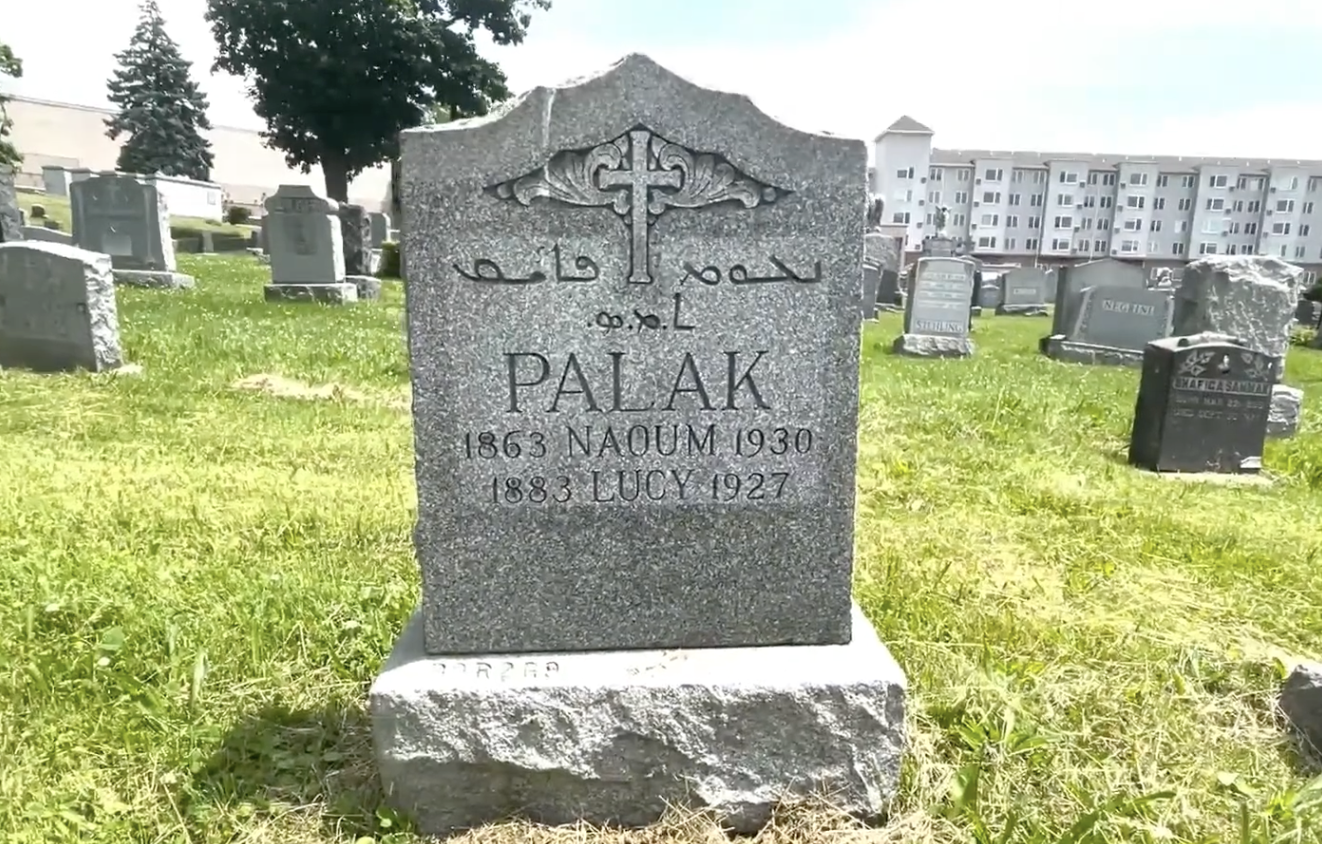Palak rejects this idea outright, calling it an illusion born of false imagination. His words reveal the tensions within the Assyrian community more than a hundred years ago, and how easily a single word could sow suspicion and division among a nation stuck in a sectarian mindset, much like today.
Thoughts on Our Awakening and Unity
By Naum Faik Palak, Beth-Nahrin Newspaper, September 1917
We Assyrians have for centuries groaned in the darkness of heedless sleep, unaware of the ideas of nationhood, identity, and homeland. Wandering aimlessly in the dark deserts of ignorance, like a traveler who does not know where to go, one day a light rose upon us, the light of Awakening (Intibah).
When we opened our eyes, we saw that we had fallen behind in education, language, press, literature, culture, trade, agriculture, and industry, deprived of all the tools of civilization and progress.
Among us, no trace of national spirit remained, no page from the history of our ancestry, no feeling of love for the homeland, nor even a thought inspired by the desire to learn our language. We had become like a lamp about to go out, like a sick person taking his final breaths. We came to believe that the only medicine that could cure this condition was Intibah – awakening.
"We prefer to remain in our own negligence rather than awaken"
With this belief, we worked and struggled; but unfortunately, the diseases of fanaticism, selfishness, and the inability to fully grasp the meaning of awakening – which have taken root in our nature – have lessened the effect of this medicine.
Let us give an example:
A family, upon the advice of a doctor, brought a very effective medicine for their patient. While the patient lay on his deathbed and the medicine needed to be given immediately, the family members began to argue about what the medicine was made of. One said it contained sulfate, another said morphine, another claimed soda or some other substance. While the patient was struggling with death, they quarreled among themselves – and the patient died.
This is exactly the situation of our nation.
Even though our people know that the medicine of Intibah is necessary for our salvation, they fall into meaningless disputes among themselves. When the word Intibah was translated into Assyrian as 'Irutho or 'Irutha, some took this as an excuse to turn their backs on the awakening movement. We prefer to remain in our own negligence rather than awaken. In other words, we argue about the medicine that could save the patient – and let him die. What a strange state!
It is our duty to clarify this matter

The Establishment of the “Intibah” Society
Our Intibah (Awakening) society was first founded in Diyarbakir, Turkey. The name of such a national and public organization had to be in a language the state could understand. Moreover, since ninety-nine percent of Assyrians in Turkey did not know their own language, it was necessary to express it in a way that people could understand. For this reason, we used the word Intibah and explained its meaning to our people as “to awaken,” “to come to one’s senses.”
However, since the word also contained meanings such as “political awakening,” it was thought that it could be misunderstood in that era of oppression. Therefore, to ease both government suspicions and the people’s fears, the word ilmî (scientific) was added, and the society was named Intibah-ı Ilmî – Scientific Awakening.
Over time, the national and cultural meaning of Intibah settled into the hearts of the Assyrians. Branches were opened in many cities of Turkey, as well as one in America.
Developments in America
At that time, our idea was to spread the Intibah movement not only among one sect but also among various Assyrian communities – Maronites, Nestorians, Chaldeans, and Catholics. However, conditions and time did not permit this.
Nevertheless, we established contact with our Chaldean brothers in Diyarbakir who had founded the Tekâmül (Progress) society; we held discussions to strengthen our cultural and national ties. But as war and political turmoil intensified in Turkey, it became impossible for the Intibah society to continue there.
Many members emigrated to America, where new branches were established and the movement grew.

Adoption of the Name “'Irutho”
As we sought to spread the meaning of Intibah among all Assyrian communities, we learned that many Nestorian Assyrian brothers were living in America. We met with them and shared our ideas. They joined our society and founded a branch in Yonkers.
These brothers were, like us, part of the Assyrian nation. Like the Assyrians of Midyat, Mosul, Cizre, and Siirt, they preserved the spoken Assyrian language and, not knowing another language, had to translate the word Intibah into Assyrian. Thus, Intibah became 'Irutha (ܥܝܪܘܬܐ) or 'Irutho (ܥܝܪܘܬܰܐ) in their dialect.
Since America was a free country, everyone had the right to use their own language. Therefore, instead of continuing to use Intibah, it was considered more appropriate to translate it into Western Assyrian and say 'Irutho. Because we are Assyrians, it is more fitting for our national society to bear a name in our own language rather than in Arabic or another foreign tongue. Thus, we adopted 'Irutho instead of Intibah.
Misunderstandings
After this explanation, some of our countrymen — our Assyrian brothers — began to doubt this translation. They fell into baseless suspicions and false imaginations. They began to turn the issue into a sectarian matter.
They thought that our minority – the Western Assyrians – would join the majority of the Eastern Assyrians (the Nestorians), and that perhaps in the future we would even unite with them religiously. With these wrong ideas, they troubled their minds in vain.
Those baseless illusions and unfounded dreams gave rise to unnecessary gossip and rumors.
The original text was translated by Aydin Beth-Naqshe (Aslan).










